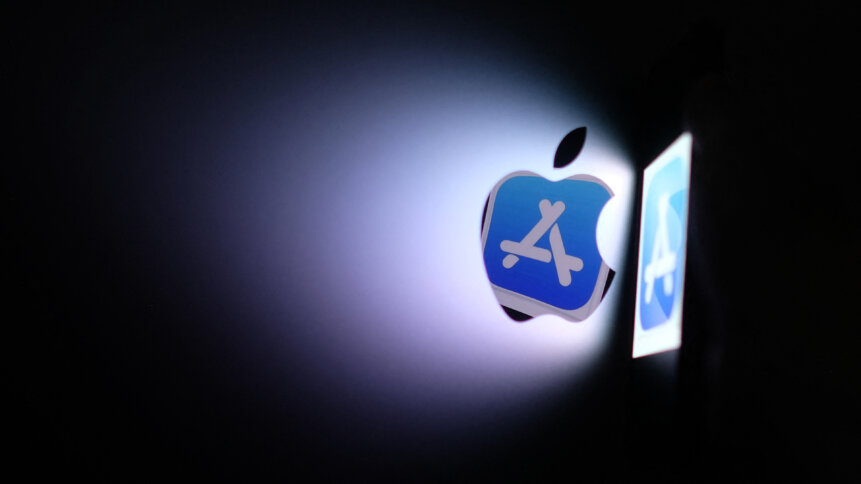Apple gains PR win with small developer concessions, loses out on others

Back when Microsoft released Windows 95, the satirical comic strip Doonesbury noted that despite looking and feeling like Apple’s operating system to a litigious degree (folders, windows, and a generally pleasant GUI), the new Windows was probably legally immune, being a “platform supported by 3,000 lawyers.”
These days, the boot is on the other foot — although instead of plenty of lawyers, Apple employs some of the best PR and marketing bodies on the planet, to market what it clearly positions as luxury items, as opposed to mere tech hardware. Recent days have seen both extremes of outcome from the Apple PR machine: a veritable hit for App Store policy “concessions” to developers, and a huge miscalculation with its on-device child abuse-scanning concept.
To begin with the very public stumble: Apple stated it was going to scan images on users’ iPhones to check for child porn imagery. Experienced industry watcher’s BS alarms will have been set off by the “protect the children” line, which is a perennial favorite that was temporarily eclipsed by the “protect us from terrorists” line. No one of sane mind can deny the moral concepts behind either stated intention, of course — and that’s the idea.
In the details, however, we learned that Apple would be scanning images on users’ iPhones that were marked for upload to iCloud before they were to be transferred up to the Apple data centers. A hash of each image (where “hash” refers to a unique mathematically derived figure determined by the digital makeup of an image) would have been compared with hashes of known child porn imagery collated by the US-based National Center for Missing and Exploited Children.
Privacy advocates stated their worries that such on-device scanning could, at some time in the future, be misused. A totalitarian regime, for example, might insist that Apple add a few hashes of images of the regime’s own to the “ban list”, and, presumably, the secret police would descend in the night to disappear the miscreants.
While that might seem like farfetched nonsense, it’s worth noting that despite its “privacy-first” stance — propagated by that slick PR machine — Apple has history on this particular score. To sell its hardware in China, Apple was forced to concede that for its Chinese customers, iCloud data could be stored in Chinese-government-run data centers, encrypted using keys that data center staff (government employees) have access to.
The plans for phone scanning are now on hold, after several “clarification” statements and online events for journalists failed to silence the internet.
This sort of tool can be a boon for finding child pornography in people’s phones. But imagine what it could do in the hands of an authoritarian government? https://t.co/nB8S6hmLE3
— Matthew Green (@matthew_d_green) August 5, 2021
In a happier development for Cupertino, the spin for the company’s concessions to smaller developers trying to make some money from their iOS apps have been largely reported with a grudging positivity by most of the mainline and technology press:
“This new program is sure to please more niche app makers, indie game developers, and other members of the iOS ecosystem who’ve felt the scale and success of the App Store hasn’t translated to tangible developer benefits in recent years,” proclaimed The Verge, and “US iOS app developers with less than US$1 million per year in proceeds from App Store sales can receive hundreds to tens of thousands of dollars from the fund, along with other benefits achieved by the settlement,” said Business Wire.
The antitrust lawsuit filed by two app developers in a California court and settled by Apple has produced a concession from Apple that developers may mention in their in-app documentation or in an email that they have a website (for instance) and that users might get a different (cheaper) price for what’s on offer there, not available via the App Store.
However, there can be no clickable link through to a webpage or portal that can make a payment outside the Apple ecosystem. Users would have to launch a browser, manually navigate to the vendor’s site, and find the offer in question. Is that enough to put most people off, especially those in a hurry for in-app jewels, credits, or player skins? Probably. Is it a concession from Apple? Not really.
Apple PR has promised to be more open as to the reasons why submitted apps aren’t accepted to its stores, and has also reaffirmed a US$100m fund to help smaller developers (“small” being defined as having a turnover of less than US$1m annually) get their apps published. There will continue to be grants available of US$250 and up for the next three years for small dev shops. Given that the vast majority of iOS apps emanate from small development companies (small compared to the Epic Games of this world, at least), and that Apple is currently worth US$2.08 trillion, these are hardly “concessions” that will have Apple stockholders sweating.
The Epic Games lawsuit is, of course, the high-roller in town, with an outcome that at least has the potential to change the way companies monetize iOS and Mac OS apps. It’s that case, along with possible EU antitrust lawsuits and — most scarily for Tim Cook — the specter of Congressional hearings that will be worrying Apple. Last month the US Supreme Court gave the green light for a class-action lawsuit by consumers over App Store charges which are held to be artificially high because of Apple’s 30% (15% for smaller developers) rake-off from all payments that go through its app stores.
But by making preemptive concessions — albeit ones that are little concessions for the world’s most valuable company — Apple will be able to come to Capitol Hill hearings and courtroom tables showing that it’s heard the criticism and is proactively taking steps to change its ways. The company’s well-paid advocates can shrug and point at the evidence: their heart’s in the right place, is it not? It’s Apple’s turn to take the criticism that it’s “supported by 3,000 lawyers”, and a PR machine that seems to need them.








